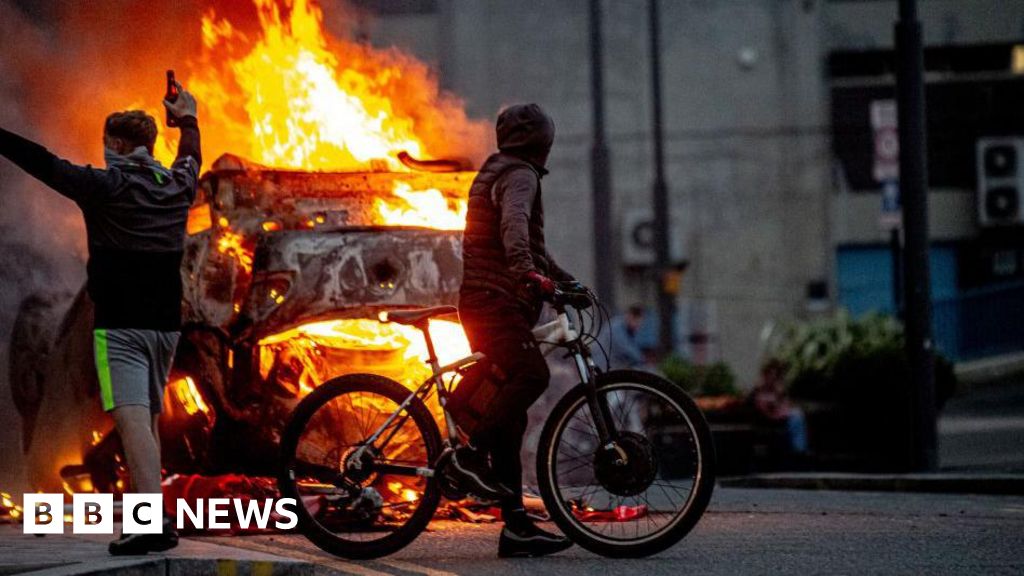There was a “clear connection” between the violent dysfunction in England and Northern Eire in the summertime and posts on social media and messaging apps, Ofcom has concluded.
The federal government had requested the media regulator to think about how unlawful content material and disinformation unfold through the unrest.
In an open letter setting out its findings, Ofcom boss Dame Melanie Dawes mentioned such content material unfold “broadly and rapidly” on-line following the stabbings in Southport, in July, which preceded the dysfunction.
She added most on-line companies took “fast motion”, however mentioned the responses of some companies have been “uneven”.
“Posts in regards to the Southport incident and subsequent occasions from high-profile accounts reached tens of millions of customers, demonstrating the position that virality and algorithmic suggestions can play in driving divisive narratives in a disaster interval,” Dame Melanie wrote.
Consultants say it exhibits the ability – and accountability – social media platforms have.
“Ofcom is saying that social media posts inciting riots aren’t simply phrases – they play an enormous half in fanning the flames of dysfunction,” mentioned Rashik Parmar, from BCS, the Chartered Institute for IT.
“There ought to be accountability the place platforms enable dangerously divisive content material to go unchecked,” he added.
Media analyst Hanna Kahlert, at Midia Analysis, mentioned Ofcom’s findings amounted to a “name for social platforms to take better possession of the impression of content material.”
On the time of the unrest, Ofcom confronted criticism for not doing extra to rein within the unfold of unfaithful and inflammatory content material.
It urged tech companies to take motion – but additionally identified the improved powers it is because of get underneath the On-line Security Act had not but come into drive.
The act will see the creation of codes of observe for giant tech companies which is able to place new obligations on them for tackling disinformation.
“I’m assured that, had the draft Codes been in drive on the time, they’d have offered a agency foundation for pressing engagement with companies on the steps they have been taking to guard UK customers from hurt,” Dame Melanie wrote.
She mentioned the brand new powers set “clear requirements” for what Ofcom would count on to see in future from massive tech companies, comparable to:
- Specifying of their phrases of service provisions how people are to be shielded from precedence unlawful content material
- Having programs designed to swiftly take down unlawful content material and having “adequately resourced” content material moderation groups
- Offering efficient and accessible mechanisms for customers to complain about unlawful content material, together with on messaging platforms
The unrest which broke out in August 2024 was the worst that had been seen within the UK for a decade.
It was adopted by waves of arrests and prosecutions, some for on-line offences.
The position that massive tech performed was topic to a lot scrutiny – although the platforms themselves remained largely silent.
The prime minister additionally obtained dragged right into a disagreement with one of many highest profile individuals in tech – X proprietor Elon Musk.
The tech billionaire steered that “civil warfare is inevitable” following the dysfunction.
Sir Keir Starmer hit again saying there was “no justification” for Mr Musk’s feedback, including there was extra that social media corporations “can and ought to be doing”.



